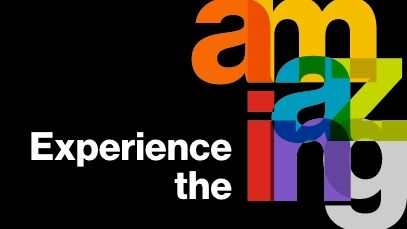Information Technology and Analytics MS
| Course | Sem. Cr. Hrs. | |
|---|---|---|
| First Year | ||
| ISTE 600 |
Analytical Thinking
<p>There is mounting evidence of a need to improve the ability of individuals and groups to think thoughtfully and analytically in order to develop appropriate and useful solutions to complex problems. Sources of complexity include human cognitive limitations, uncertainty, system dynamics, and reasoning errors. This course will provide students with frameworks, techniques, methods, and tools to improve analytical and critical thinking and presentation skills. Students will work individually and in groups on assignments and case study analyses.</p>
|
3 |
| ISTE 605 |
Scholarship in IST
<p>IST graduate students are expected to make a scholarly contribution as a requirement for the MS degree. The Scholarship in Information Sciences and Technologies course provides students with the fundamental skills needed to define and conduct a program of scholarly investigation in the form of a capstone or thesis project. The course focuses on skills such as academic writing, searching the literature, identifying and articulating interesting and important topics and problems, scholarship ethics, developing capstone proposals, critical thinking, and effective oral and written communication and presentation of scholarship.</p>
|
3 |
| ISTE 610 |
Non Relational Data Management
<p>This course provides students with exposure to foundational information sciences and technologies. Topics include an overview of data types, structuring and processing data and knowledge, data transformation, and data storage and warehousing. Students will work with non-traditional (noSQL) data stores to manage large datasets in the context of specific problem scenarios.</p>
|
3 |
| ISTE 612 |
Information Retrieval and Text Mining
<p>This is the second course in a two-course sequence that providesstudents with exposure to foundational information sciences and technologies.Topics include internet middleware technologies, data and text analytics, andinformation visualization. Note: One year of programming in an object-orientedlanguage, a database theory course, a course in Web development, and a statisticscourse is needed.</p>
|
3 |
| ISTE 782 |
Visual Analytics
<p>This course introduces students to Visual Analytics, or the science of analytical reasoning facilitated by interactive visual interfaces. Course lectures, reading assignments, and practical lab experiences will cover a mix of theoretical and technical Visual Analytics topics. Topics include analytical reasoning, human cognition and perception of visual information, visual representation and interaction technologies, data representation and transformation, production, presentation, and dissemination of analytic process results, and Visual Analytic case studies and applications. Furthermore, students will learn relevant Visual Analytics research trends such as Space, Time, and Multivariate Analytics and Extreme Scale Visual Analytics.</p>
|
3 |
| ISTE 780 |
Data-driven Knowledge Discovery
<p>Rapidly expanding collections of data from all areas of society are becoming available in digital form. Computer-based methods are available to facilitate discovering new information and knowledge that is embedded in these collections of data. This course provides students with an introduction to the use of these data analytic methods, with a focus on statistical learning models, within the context of the data-driven knowledge discovery process. Topics include motivations for data-driven discovery, sources of discoverable knowledge (e.g., data, text, the web, maps), data selection and retrieval, data transformation, computer-based methods for data-driven discovery, and interpretation of results. Emphasis is placed on the application of knowledge discovery methods to specific domains.</p>
|
3 |
| ISTE 764 |
Project Management
<p>Information technology projects require the application of sound project management principles in order to be developed on time, on budget, and on specification. This course takes students through the nine knowledge areas of modern project management and the utilization of project management principles in both traditional and agile environments.</p>
|
3 |
| ISTE 724 |
Data Warehousing
<p>This course covers the purpose, scope, capabilities, and processes used in data warehousing technologies for the management and analysis of data. Students will be introduced to the theory of data warehousing, dimensional data modeling, the extract/transform/load process, warehouse implementation, dimensional data analysis, and summary data management. The basics of data mining and importance of data security will also be discussed. Hands-on exercises include implementing a data warehouse.</p>
|
3 |
| ISTE 740 |
Geographic Information Science and Technology
<p>This course provides a survey of the theory, concepts, and technologies related to representation and understanding of the earth - a scientific domain known as Geographic Information Science and Technology (GIS & T). Students will gain hands-on experience with technologies such as Global Positioning Systems (GPSs), Geographic Information Systems (GISs), remote sensing, Virtual Globes (Google Earth), and web mapping mashups. Furthermore, students will learn relevant GIS & T theory, concepts, and research trends such as spatial reasoning, spatiotemporal data representation, and spatial analysis.</p>
|
3 |






